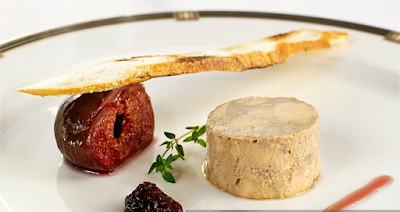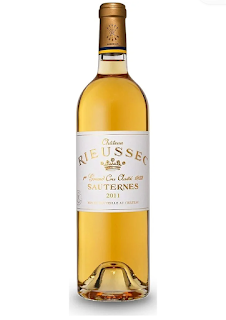 |
"The Art and Controversy of Foie Gras” |
I got this big question all of a sudden one week before Christmas. WHY IS FOIE GRAS SO SPECIAL DURING THE HOLIDAYS? It all began when my husband mentioned that he had seen an advertisement on his way home announcing that some locals were selling foie gras. Unfortunately, my husband missed the signage or advertisement to find the sellers, even though he told me he would go buy the foie gras the next day. He double-checked the road where he spotted the signage, even in the Intermarche publication, to ensure it was still there. Sadly, it's sold out. Instead, he purchased one at the grocery store. Second, when I looked at my French Pinay Facebook group, I saw that my friends were eating foie gras in their family photos.
So Why is Foie Gras So Special to French People?
For the French, foie gras isn’t just food; it’s an experience. It represents luxury, refinement, and the art of living well. Its presence on the table signifies a special occasion, whether it’s Christmas, New Year’s Eve, or a wedding.
Foie gras is also a testament to France’s culinary expertise. Its preparation requires skill and patience, from the careful feeding of the ducks or geese to the meticulous crafting of terrines and pâtés. It’s no wonder that the French take such pride in this delicacy.
But above all, foie gras is about bringing people together. It’s a dish to be shared with loved ones, creating moments of connection and joy. For many French families, a holiday meal wouldn’t feel complete without it.
The History and Heritage of Foie Gras
The story of foie gras is an inspiring journey that began in ancient Egypt, where geese were fattened for their livers. This culinary art spread to Rome but found its true expression in France, evolving into the luxurious delicacy we cherish today. Renowned regions like Périgord and Alsace embody this tradition, taking pride in their methods, lovingly passed down through generations. Even in 2006, this legacy continued to inspire food lovers everywhere!
DISCLOSURE: By purchasing a product or service through the links I share, I may earn a small commission at no extra cost to you. Your support through these purchases helps me and my family, and we truly appreciate it!
How to Eat Foie Gras
If you’re new to foie gras, you might wonder how to enjoy it properly. Here are some tips to savour this French delicacy:
Serving Options:
Foie gras can be served as a terrine or pâté, often chilled and sliced. Pan-seared foie gras is another popular preparation, offering a warm, caramelized exterior with a creamy interior.
Pairing with Bread:
Traditional baguette or toasted brioche are classic choices. The bread’s mild flavor and firm texture provide the perfect canvas for foie gras.
Adding Sweet Accents:
Complementary spreads like fig jam, onion marmalade, or a drizzle of honey enhance the richness of foie gras with a touch of sweetness.
Beverage Pairings:
Sweet wines like Sauternes or Monbazillac are the gold standard for pairing with foie gras. Their fruity notes balance the dish’s richness. Champagne or a crisp white wine can also work beautifully.
Colombard Chardonnay
Savor the Flavor:
Here are some ideas for creating a memorable holiday table:
Festive Colors:
Use gold and red accents in your table settings to evoke the warmth of the season. Gold chargers, red napkins, and crystal glassware can create a sophisticated look.
Centrepiece Dish:
Place the foie gras on a beautiful serving dish, garnished with fresh herbs or edible flowers. Surround it with accompaniments like bread, spreads, and fruit.
Lighting and Decor:
Add candles and greenery, such as pine branches or holly, to create a cozy, festive atmosphere. Elegant tableware and fine linens complete the look.
Final Thought
My first encounter with foie gras was more than just a culinary moment; it was a lesson in French culture and the art of celebration. The French have a way of making food feel special, turning a meal into a memory.
Whether you’re enjoying foie gras for the first time or it’s already part of your holiday traditions, it’s a dish that embodies the joy of sharing good food with good company. So this holiday season, set your table, uncork a bottle of Sauternes, Monbazillac, or Rosé wine and savor the magic of foie gras—just like the French do.








Comments
Post a Comment